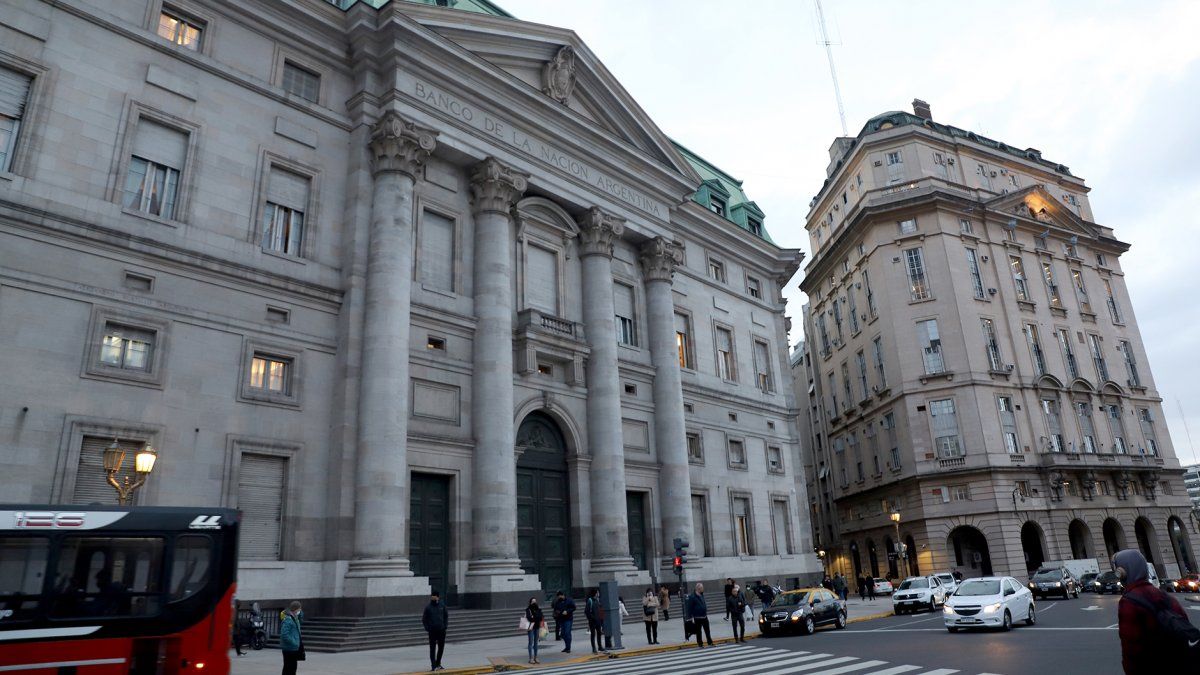Banco Nación (BNA) has already announced that the Special Account for fiscal normalization is now availableaimed at those who meet the requirements and want to regularize their holdings in the country and/or abroad. This is within the framework of the regulation of the Asset Regularization Regime established by Law 27,743, a process better known as “Whitening”.
The entity indicated that This type of account can be opened through the BNA website. and which will be used to credit the amount from holdings in national or foreign currency, in the country or abroad, that the holder voluntarily declares to the AFIP and that have been in his possession as of December 31, 2023.
In this regard, the BNA stated that “this special account will allow regularization of holdings of national or foreign currencyin a safe and beneficial manner.”
How to open the Special Account for fiscal normalization
As detailed, The opening will be in the name of the declarant and the currency in which the declared holding is located.With the credited funds, the client will maintain the deposit in the original currency and may use it in duly documented onerous operations or apply it to the permitted destinations, provided for in the regulations.
It should be noted that the Special Account is regulated by Communication “A” 8062 of the Central Bank (BCRA), within the framework of Law 27,743 and must be framed within the provisions of AFIP General Resolution 5528/2024 and CNV General Resolution 1010/2024.
Let us remember that, at the end of June, Congress approved the “Palliative and Relevant Fiscal Measures”, commonly called the “fiscal package” of the Bases law, in which the “Asset regularization regime”, through which taxpayers may voluntarily disclose the holding of assets not declared as of December 31, 2023.
In this regard, the National Executive Branch (PEN) published the Decree 608/2024 establishing details of the regularization regime. Likewise, the Federal Public Revenue Administration (AFIP) did the same, publishing regulatory provisions of the regime through General Resolution 5528/2024.
Who will be eligible for money laundering?
Those individuals and legal entities that were tax residents as of December 31 of last year will be able to access the money laundering.whether or not they are registered with the AFIP.
On the other hand, subjects who are not tax residents, but who were tax residents before the aforementioned date, will also be able to access the system.
In the latter case, they will be considered tax residents again from January 1, 2024, both for Income Tax and Personal Property Tax.
Public officials, certain subjects linked to state agencies, bankrupt subjects and those convicted of certain crimes detailed in the regulations are excluded from money laundering.
Regarding the types of assets that are affected by money laundering, it should be mentioned that the subjects mentioned above may only regularize assets that were their property, possession or custody as of December 31.
That is to say, those assets generated after January 1 cannot be regularized through money laundering.
What assets can be included in money laundering?
The law establishes a broad spectrum of assets that can be regularized through money laundering, whether located in the country or abroad, such as: cash, balances in bank accounts, real estate, shares in companies, trusts, mutual funds, securities, credits, rights and crypto assets, among others.
As for cryptoassets, an important detail is that, at the time of regularization, they must be in custody and/or administration by a Virtual Asset Service Provider (PSAV) that is registered with the National Securities Commission (CNV).
Joining the regime will be possible from July 18, in accordance with the provisions of the regulations published by AFIP.
On the other hand, the deadline for expressing such adhesion is March 31, 2025. However, the executive branch has the power to extend this date until July 31 of that year.
Source: Ambito
I am a 24-year-old writer and journalist who has been working in the news industry for the past two years. I write primarily about market news, so if you’re looking for insights into what’s going on in the stock market or economic indicators, you’ve come to the right place. I also dabble in writing articles on lifestyle trends and pop culture news.




